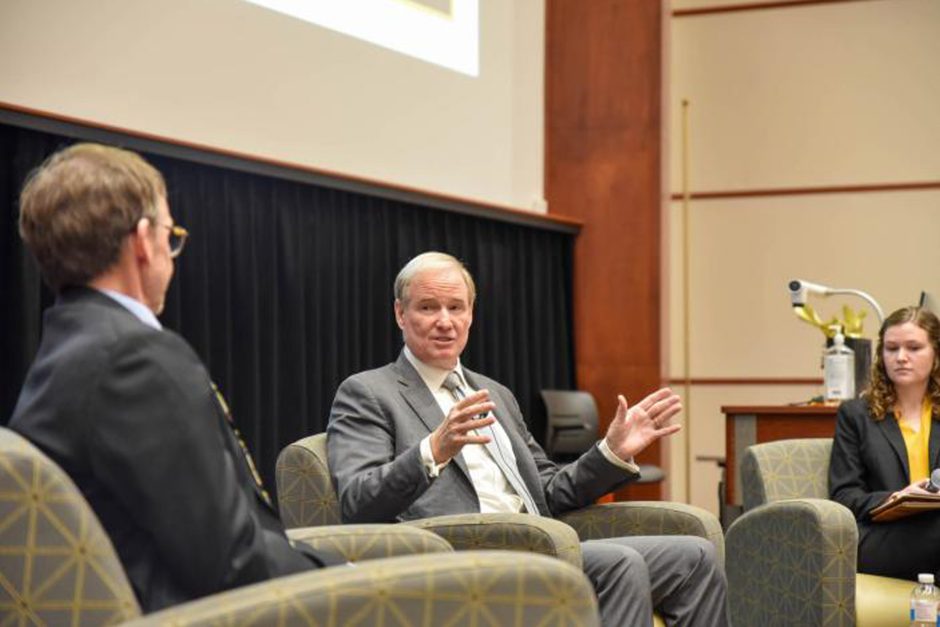
Nov. 22, 2024
Contact: Sara Diedrich, diedrichs@missouri.edu
Patrick M. Walsh, a retired four-star admiral with the U.S. Navy, is a seasoned leader known for his ability to excel under pressure.
Walsh has been a transformative leader at the very highest levels in the Navy, business and education. He recently spoke during the School of Accountancy’s annual Richard M. Orin Ethics Symposium at the University of Missouri’s Robert J. Trulaske, Sr. College of Business. Hundreds of students, faculty, staff and community members filled Bush Auditorium in Cornell Hall to hear him speak on “Ethical Leadership: Insights from the Command Center to the Boardroom.”
Walsh said the key to ethical leadership is to make decisions based on first principles — fundamental truths that stand on their own rather than being derived from other assumptions.
“It’s on all of us to live in a more ethical world,” said Eric Weissmann, Orin’s grandson. “My grandfather would want you to know that ethics is about doing the right thing, even when it’s hard but especially when it is hard.”
Walsh agreed, telling listeners even when people from all different walks of life criticize you or question your actions, you can stand by your choices if they are based on first principals. The outcomes you reach will have a resilience and integrity that will withstand the judgment of others, allowing you to live with confidence in your decisions.
Walsh emphasized the importance of relationship-building for new leaders, especially with the teams they oversee.
"It's really important for these leaders to hear from the team because if a leader comes in and dominates the room and just wants to hear themselves speak and proclaim, well, that's fine, but what you will find is everyone just nodding their heads," he said. "In today's environment, you have to demand a dialogue."
Walsh added that sending directives through email is insufficient because leaders can't gauge how messages are received. Face-to-face communication, he stressed, is vital to understanding how team members truly feel, especially those who may be hesitant to speak up in larger groups.
"It's important for me to find a way to hear that person's voice, he said.
During his distinguished career, Walsh served as the Vice Chief of Naval Operations and commanded the U.S. Pacific Fleet. He was awarded the Grand Cordon of the Order of the Rising Sun – one of Japan’s highest honors – for his leadership of Operation Tomodachi, which provided critical aid to Japan following the devastating 2011 earthquake that claimed nearly 20,000 lives. Additionally, he served as special assistant to the director of the Office of Management and Budget as a White House fellow. He chaired the Department of Leadership, Ethics and Law at the U.S. Naval Academy, served as the executive assistant to the Chief of Naval Personnel, and reported to the Joint Staff for his first flag assignment as the deputy director for Strategy and Policy.
Read more from the Robert J. Trulaske, Sr. College of Business


